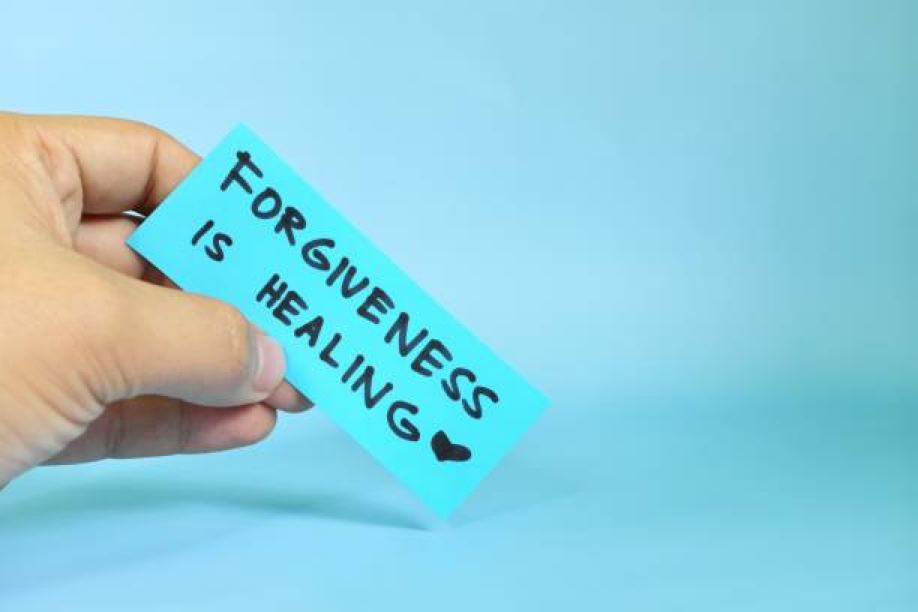Staff
Competency 5: Expansion of Skills
Posted by Holy Family Counseling Centers Staff on April 20, 2020
This competency will focus on a priest’s commitment to be a lifelong learner. Seeking to expand their vocations beyond the limits of theology, priests will be encouraged to pursue excellence in business management, human resources, and pastoral counseling. We will explore what is needed to help priests manage these varied responsibilities.
Over the past few months, we have delved into various aspects of priestly life that, when practiced regularly, may add to greater fufilment, emotional health, and overall holiness. Each of the previous competencies: Vocational Resiliency, Positive Fraternal Connections, Sustaining Healthy Lifestyles, and Securing an Identity in Spiritual Fatherhood, has touched upon an aspect of priestly life that has proven fruitful when practiced. The final competency to be discussed is that of expanding skill sets; experiencing vocations as opportunities to continue learning as well as stretching beyond the limits of theology into other areas of vocation.
If you have never heard the phrase “a Jack of all trades” it means an individual who has some level of competency at a number of different skills. If you are familiar with the phrase, then you probably know the quote “a Jack of all trades, but a master of none.” Commonly, this is used in a derogatory fashion, saying that someone may know a little about a lot of things, but does not have any expertise in one particular area. The phrase originated with he term ‘jack’, a Jack was oft en the name given to the common place man at work (a jack-tar was a sailor) and later became a substitute for tools that took over the place of the individual (a jack-frame is a carpenter’s saw horse). Over time in their chosen fields, Jack’s saw so much from other areas that they gained a working knowledge of a number of different areas.
Priestly life is no less a hodgepodge of different areas of industry combining into one. At any given time a priest is an accountant, a budgeter, a boss, a handyman, a spiritual director, a landscaper, and any other number of roles that are required. Arguably, the roles a priest will have to take on may increase according to the resources of the parish they are assigned. With all of this in mind, it is important to remember the entire phrase about Jacks: “A jack of all trades, but master of none, is oft en better than being a master of one.” Throughout the course of the Church, priests have always taken on multiple roles. Th is newsletter looks at ways in which skill sets can be effectively expanded upon.
A. Vocational self-care
In today’s world we hear a lot about self-care. We are told to take time for ourselves so that we can exercise, sleep, relax, and do things that we enjoy. In a world where schedules always seem to be full and we are always connected by technology acts of self-care are often hard to implement. Individual self-care is an important part of life, and we have discussed aspects of this in our newsletter dedicated to sustaining a healthy lifestyle.
Vocational self-care is also an important aspect of living. At some point in your vocation there was a decision made to serve Our Lord. Through seminary and beyond schooling, experience, and other aspects of priestly life have shaped the kind of priest you have become. There is no doubt that many of these aspects have been beneficial. There is also no doubt that some aspects may not have the same shine on them that they used to. Vocational self-care is about keeping the professional side of us well. Is your vocation still motivating and interesting? Do you know how to balance leisure and work-time? Do you feel inspired and challenged?
As a shepherd of God’s people, you protect them, feed them, and help those that are lost. In doing so it is important to remember that you also must know how to administer to the flock. Before you were ordained you felt a calling. In discernment that calling came to fruition and, with Christ as a guide, you live out that calling everyday. Shepherds are constantly on the look out for dangers, for food, and for safety. They remain observant of their surroundings and what the flock will be facing, both good and bad. In short, shepherds are always learning and expanding their knowledge for the betterment of the flock. Shepherds also take time for their own rest. They allow their flock the freedom to find their own food, to handle some dangers on their own, and to get lost and be reunited again.
These periods of rest and rejuvenation are invaluable. As we read in the Gospel of Mark, “And he said to them, ‘Come away by yourselves to a desolate place and rest a while (Mark 6:31).’” When we do not make time for what we need, we waste time we do not have. Do you remember why you first felt called to the priesthood? Do you remember the vision of the priest you wanted to be? Are you near or far from that vision? Vocational self-care involves grasping on to that vision and finding ways to bring yourself closer to it. The reality of any vocation or job is often different from our expectations, but it does not have to be completely different. Here are a few ideas to increase vocational self-care.

B. Types of Skill Sets
Generally, there are two types of skills used in work: soft skills and hard skills. Soft skills are those that we can use in any job. They are the interpersonal skills and personality traits that we carry with us all of the time. These skills make up the basis for how we communicate and work with others. Soft skills include:

Soft skills make up the “who” of our work personas. They are transferrable and appear in many of the different roles that we may have to take on. Soft skills develop over time, they are integral parts of our personalities and morals and often develop as we grow and mature. Soft skills can be expanded upon by increasing contact with others through team-building activities, support groups, friendships, or mentorship. Moving through life connected to others allows us a chance to grow who we are in many different ways:
1. Be open to feedback. Not all criticism is negative, it can help us grow when we are open to receiving it. Focus less on how criticism is delivered and discover what the message is. Listening to superiors, colleagues, employees, and parishioners allows for a well-rounded way to learn.
2. Communicate often. Effective communication benefits everyone. Communicate about tasks involved with your vocation and those outside of it as well. Take advantage of the different modes of communication available to you. Face-to-face communication is always important. We can also utilize emails, text messages, and presentations as a way to communicate with others. Keep in mind how you address others, if your message is clear, and notice how others communicate with you to develop a style of communication that works for you.
3. Adapt to workplace changes. As with any type of work, there are going to be fluctuations that occur in placements, staff changes, and procedure changes (as seen by our response to Covid over the last year). Try not to view changes as negatives, but rather as opportunities to implement new ideas, change procedures that are out-dated, and to learn how others around you adapt to the fluidity that is introduced.
4. Be observant. Notice how others around you, no matter their role, handle their vocations or work roles. Notice what things you can adapt into your own soft skill repertoire and make adjustments as needed. We can all get stuck in ruts, the more open we are to observing others and learning new ideas from how they operate, the less likely we’ll be stuck in a rut longer than we need to be. Hard skills are the skills that relate directly to how we do tasks. These are the skills that come with specific schooling, training, and experience.
Hard skills are the “what” of our vocations. Each role within your vocation requires a different set of hard skills. These skills may transfer between roles but often do so less easily then soft skills. For example, during a budget meeting any experience you have in accounting or budget management is a hard skill. Developing hard skills is more direct than developing soft skills. Most of us can recognize areas where there might be a gap in our ability to perform certain tasks. When we are honest with ourselves it makes it much easier to address these deficits.
1. Ask for advice. Openness to learning new skills is extremely important. Look at your network and determine which people in your life could offer advice. Perhaps it is a fellow priest that does well in one area, perhaps it is a friend or family member that excels within their own vocation. Asking for and following the advice of others is a great way for us to determine which skills can be expanded upon.
2. Take a class. Developing hard skills often means taking the time to learn something new. Professional development courses are often available for free and can teach us new skills in relatively short amounts of time. Learning new skills and techniques through short classes is a positive way to expand our hard skills while also refreshing the way we view certain aspects of work and vocation.
3. Set a goal. In the daily flow of life, it is easy to get lost in the current. Step back and look at areas you would like to improve upon. When those are identified set yourself a small goal and the steps you are going to take to reach it. Taking the steps to achieve a goal may lead to more positive outcomes and make success achievable.
C. Remaining Curious.
Perhaps one of the most important attitudes to maintain when expanding ones vocational or work skill set it that of curiosity. Vocations are what we strive to do in life, and they involve many different titles and responsibilities as we travel along our chosen path. As human beings we crave the familiar and not without reason, it surrounds us with feelings of safety and contentment. However, in our daily work, familiarity can lead to repetitive daily routines and feeling unsatisfied. As we read in Romans 12:2 “Do not conform to the pattern of this world, but be transformed by the renewing of your mind. Then you will be able to test and approve what God’s will is—his good, pleasing and perfect will.” Curiosity leads to learning, it is an active state of interest and wanting to know about something. Curiosity allows us to embrace circumstances that are unfamiliar and, in doing so, give us the opportunity to discover new experiences and find joy.
Numerous studies show that curiosity is linked to intelligence and learning. When we are curious about a topic we are more likely to learn about it quicker. Curiosity primes our brains for learning and helps to push us towards completing gaps in our knowledge. When we ask advice of others, we are more likely to discover those gaps and do something to correct them. Curiosity can also be helpful in how we relate to others. When we are curios about people’s lives, or they are curious about ours, it leads to levels of personal growth. Those that remain curious often end up not being bored, they are able to see new possibilities and due to an inquisitive nature, often find greater satisfaction in their pursuits.
The attribute of creativity often goes hand-in-hand with curiosity. Psychologist Mihaly Csikszentmihalyi, described creativity as, “a central source of meaning in our lives … most of the things that are interesting, important, and human are the results of creativity … [and] when we are involved in it, we feel that we are living more fully than during the rest of life.” Creativity is often associated with the arts, like drawing, painting, writing, or music. However, creativity goes beyond these traditional activities. Creativity is about finding meaning and fulfillment in any activity. Early in life you were probably encouraged to be creative. As a matter of fact, we always encourage the creativity of children and ask them to extend beyond their boundaries to discover aspects of themselves and their environments that they do not know.
As adults, we should not let go of this idea. What were some creative things you did or wanted to do as a child? Try to recall times in your life where you didn’t get a chance to be as creative as you wanted and go for it. In today’s parlance we often hear this as “thinking outside the box.” The phrase is used enough that it may have lost the punch it was designed to deliver. In thinking outside of the box we give ourselves the chance to keep engaged with ourselves, reduce our stress, and improve our skills. Creativity helps us to center our lives around God’s presence; it is viewing the world not through the world’s lens but through the lens of the Divine Creator.
Jacks of a trade started out as men who did not know what they were doing. They had to learn the skills of their trade and in doing so would see others learning skills in other trades. Through this experience, skill sets were slowly expanded. The process of leaning into a vocation, learning about it, and continuing to expand within it is not easy. Constant work on self-care, both personal and vocational, is needed to keep the mind, body, and spirit refreshed. Curiosity assists in this, and creativity bolsters the process. Expanding our skill sets starts with understanding what skills are needed. The role of a priest is ever-changing. Many different hats need to be worn and those hats sometimes change multiple times in a day. Reminding yourself to remain adaptable, to ask for advice, and to live as a constant learner will go a long way in making change a little easier.






